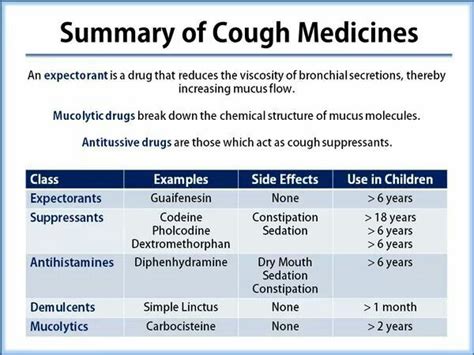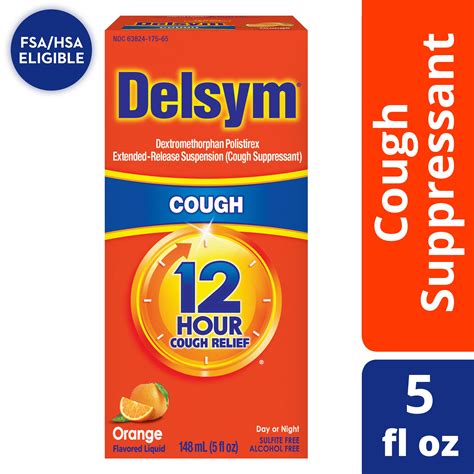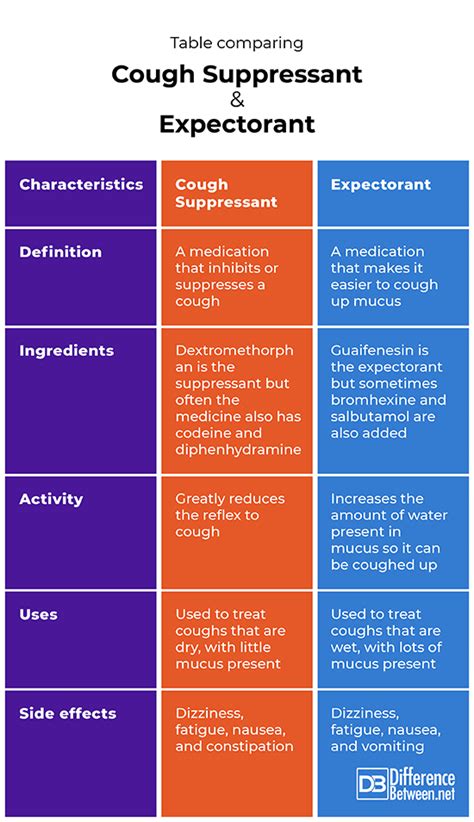Intro
Discover the best cough suppressant medicine to relieve dry, hacking coughs. Explore effective OTC options, natural remedies, and prescription treatments for cough symptom relief and respiratory health.
Coughing is a natural reflex that helps clear the airways of irritants, but persistent coughing can be uncomfortable and disrupt daily life. When seeking relief, it's essential to understand the different types of coughs and the various over-the-counter (OTC) and prescription medications available. Cough suppressants, also known as antitussives, are designed to reduce the frequency and severity of coughing. In this article, we'll delve into the world of cough suppressant medicines, exploring their mechanisms, benefits, and potential side effects.
The importance of choosing the right cough suppressant cannot be overstated. With so many options available, it's crucial to consider the underlying cause of the cough, as well as any underlying medical conditions or allergies. Some cough suppressants may interact with other medications or exacerbate certain health conditions, making it vital to consult with a healthcare professional before selecting a treatment. Furthermore, understanding the differences between various cough suppressants can help individuals make informed decisions about their health.
Coughing can be a symptom of various underlying conditions, including respiratory infections, allergies, and gastroesophageal reflux disease (GERD). In some cases, coughing can be a side effect of certain medications or a sign of a more serious condition, such as pneumonia or bronchitis. When selecting a cough suppressant, it's essential to consider the underlying cause of the cough, as well as any other symptoms that may be present. This information can help individuals choose the most effective treatment and minimize the risk of adverse reactions.
Types of Cough Suppressants

OTC Cough Suppressants
OTC cough suppressants are a popular choice for relieving mild to moderate coughing. These medications are often available in various forms, including tablets, capsules, and syrups. Some common ingredients found in OTC cough suppressants include: * Dextromethorphan: This ingredient helps to suppress the cough reflex and is often combined with other medications, such as expectorants or antihistamines. * Guaifenesin: This expectorant helps to thin and loosen mucus, making it easier to cough up. * Diphenhydramine: This antihistamine can help to relieve allergic symptoms, such as itching and sneezing, and may also have a sedating effect.Prescription Cough Suppressants

Codeine and Hydrocodone
Codeine and hydrocodone are two common prescription cough suppressants. These medications work by binding to opioid receptors in the brain, which helps to suppress the cough reflex. However, they can also have serious side effects, such as: * Addiction: Codeine and hydrocodone can be habit-forming, and long-term use can lead to physical dependence. * Respiratory depression: These medications can slow down breathing, which can be life-threatening in severe cases. * Drowsiness: Codeine and hydrocodone can cause drowsiness and impair cognitive function.Benefits and Side Effects of Cough Suppressants

However, cough suppressants can also have side effects, such as:
- Drowsiness: Many cough suppressants can cause drowsiness and impair cognitive function.
- Nausea and vomiting: Some cough suppressants can cause stomach upset, nausea, and vomiting.
- Allergic reactions: Some individuals may be allergic to certain ingredients in cough suppressants, which can cause allergic reactions, such as hives or itching.
Precautions and Interactions
When taking cough suppressants, it's essential to follow the recommended dosage and consult with a healthcare professional if you have any underlying medical conditions or take other medications. Some precautions and interactions to consider include: * Pregnancy and breastfeeding: Cough suppressants can pass into breast milk and may affect the fetus during pregnancy. Consult with a healthcare professional before taking cough suppressants if you are pregnant or breastfeeding. * Other medications: Cough suppressants can interact with other medications, such as sedatives, tranquilizers, and antidepressants. Consult with a healthcare professional before taking cough suppressants if you take other medications. * Underlying medical conditions: Cough suppressants can worsen underlying medical conditions, such as asthma, chronic obstructive pulmonary disease (COPD), and glaucoma. Consult with a healthcare professional before taking cough suppressants if you have any underlying medical conditions.Practical Tips for Using Cough Suppressants

Home Remedies for Coughing
In addition to cough suppressants, there are several home remedies that can help to relieve coughing. Some home remedies include: * Honey: Honey has natural antibacterial and anti-inflammatory properties, making it an effective cough suppressant. * Lemon: Lemon has natural antibacterial and anti-inflammatory properties, making it an effective cough suppressant. * Ginger: Ginger has natural anti-inflammatory properties, making it an effective cough suppressant. * Steam inhalation: Inhaling steam from a bowl of hot water or a steam humidifier can help to loosen and clear mucus.Conclusion and Final Thoughts

We invite you to share your thoughts and experiences with cough suppressants in the comments section below. Have you found a particular cough suppressant to be effective in relieving your coughing? Do you have any questions or concerns about using cough suppressants? Share your story and help others who may be struggling with persistent coughing.
What is the best cough suppressant for dry cough?
+The best cough suppressant for dry cough is often a medication that contains dextromethorphan, such as Robitussin or Mucinex. However, it's essential to consult with a healthcare professional to determine the underlying cause of the cough and choose the most effective treatment.
Can I take cough suppressants with other medications?
+It's essential to consult with a healthcare professional before taking cough suppressants with other medications. Cough suppressants can interact with other medications, such as sedatives, tranquilizers, and antidepressants, and worsen underlying medical conditions.
How long does it take for cough suppressants to start working?
+The time it takes for cough suppressants to start working can vary depending on the medication and individual factors. Some cough suppressants can start working within 30 minutes to an hour, while others may take longer. It's essential to follow the recommended dosage and consult with a healthcare professional if you have any questions or concerns.
